Patrick Phillips Quotes & Sayings
Enjoy the top 9 famous quotes, sayings and quotations by Patrick Phillips.
Famous Quotes By Patrick Phillips
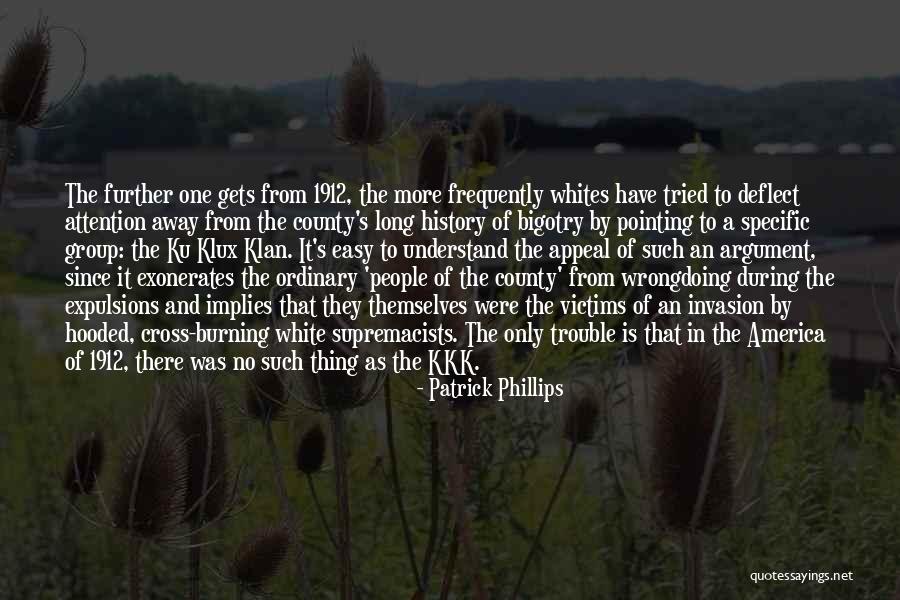
The further one gets from 1912, the more frequently whites have tried to deflect attention away from the county's long history of bigotry by pointing to a specific group: the Ku Klux Klan. It's easy to understand the appeal of such an argument, since it exonerates the ordinary 'people of the county' from wrongdoing during the expulsions and implies that they themselves were the victims of an invasion by hooded, cross-burning white supremacists. The only trouble is that in the America of 1912, there was no such thing as the KKK. — Patrick Phillips
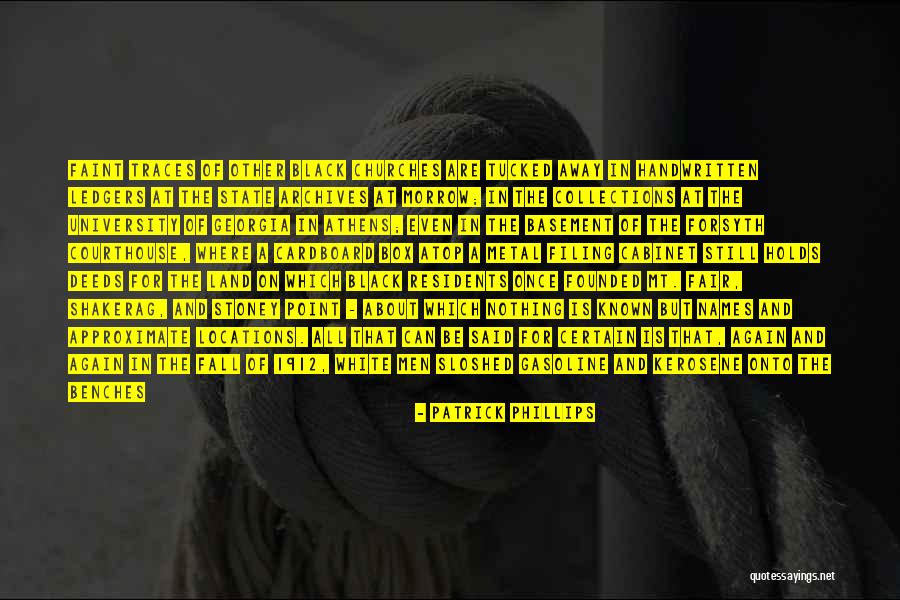
Faint traces of other black churches are tucked away in handwritten ledgers at the state archives at Morrow; in the collections at the University of Georgia in Athens; even in the basement of the Forsyth courthouse, where a cardboard box atop a metal filing cabinet still holds deeds for the land on which black residents once founded Mt. Fair, Shakerag, and Stoney Point - about which nothing is known but names and approximate locations. All that can be said for certain is that, again and again in the fall of 1912, white men sloshed gasoline and kerosene onto the benches and wooden floors of such rooms, then backed out into the dark, tossing lit matches as they went. All over the county, beneath the ground on which black churches stood, the soil is rich with ashes. — Patrick Phillips

There's no end. There's no end
to this world, everlasting.
We crumble to dust in its arms. — Patrick Phillips
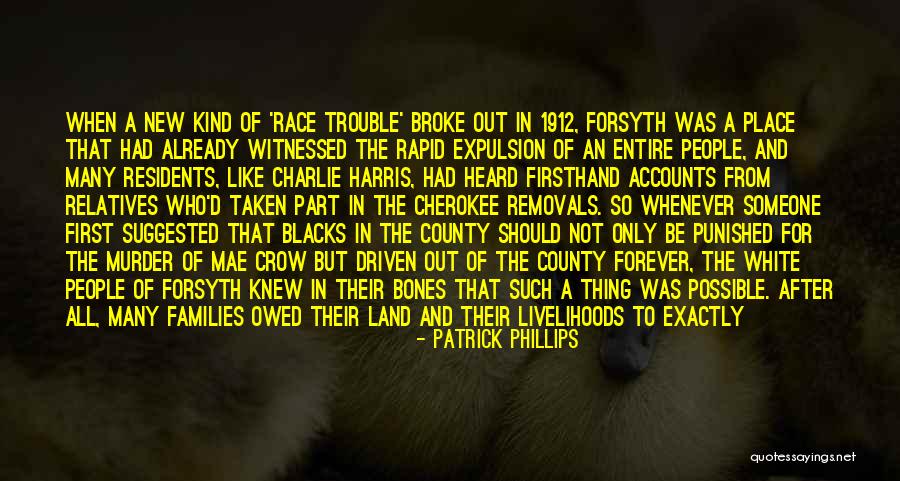
When a new kind of 'race trouble' broke out in 1912, Forsyth was a place that had already witnessed the rapid expulsion of an entire people, and many residents, like Charlie Harris, had heard firsthand accounts from relatives who'd taken part in the Cherokee removals. So whenever someone first suggested that blacks in the county should not only be punished for the murder of Mae Crow but driven out of the county forever, the white people of Forsyth knew in their bones that such a thing was possible. After all, many families owed their land and their livelihoods to exactly such a racial cleansing in the 1830s. — Patrick Phillips
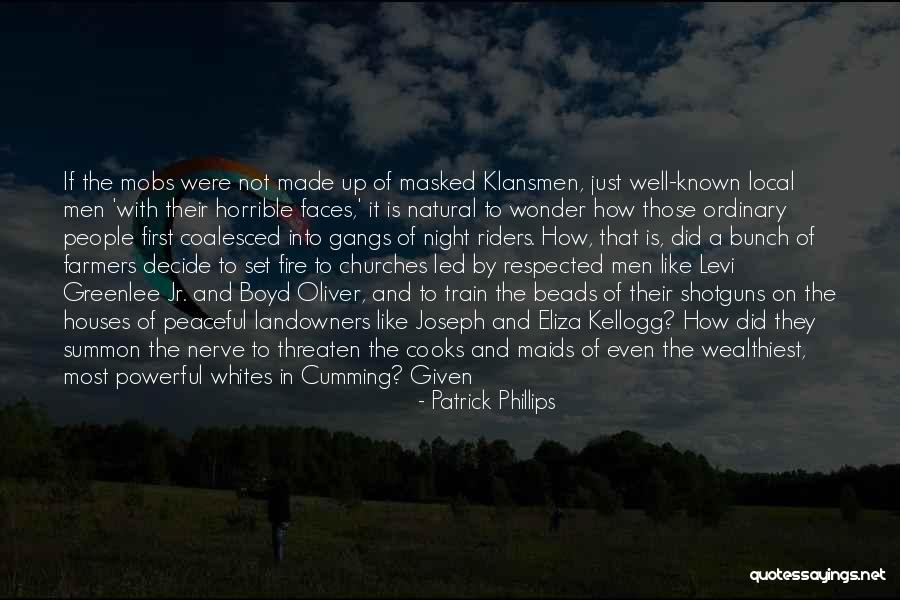
If the mobs were not made up of masked Klansmen, just well-known local men 'with their horrible faces,' it is natural to wonder how those ordinary people first coalesced into gangs of night riders. How, that is, did a bunch of farmers decide to set fire to churches led by respected men like Levi Greenlee Jr. and Boyd Oliver, and to train the beads of their shotguns on the houses of peaceful landowners like Joseph and Eliza Kellogg? How did they summon the nerve to threaten the cooks and maids of even the wealthiest, most powerful whites in Cumming? Given that it required an organized efforts, kept up not just over months but years, and given just how much will it took to sustain the racial ban generations - from what source did all that energy come, and in what epic drama did these people think they were at last taking part? — Patrick Phillips
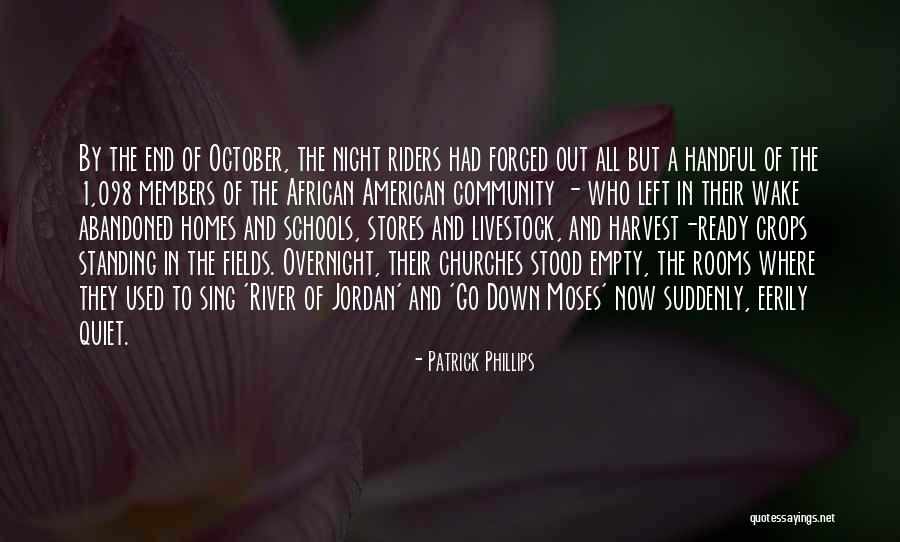
By the end of October, the night riders had forced out all but a handful of the 1,098 members of the African American community - who left in their wake abandoned homes and schools, stores and livestock, and harvest-ready crops standing in the fields. Overnight, their churches stood empty, the rooms where they used to sing 'River of Jordan' and 'Go Down Moses' now suddenly, eerily quiet. — Patrick Phillips
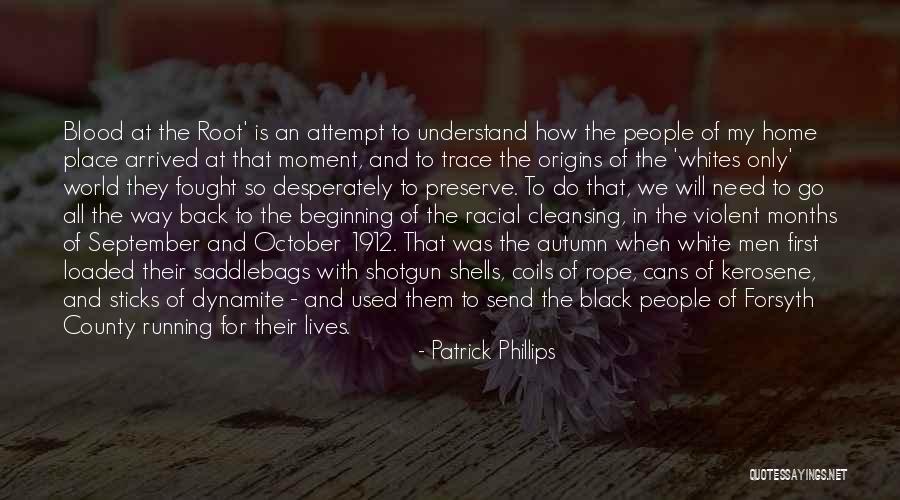
Blood at the Root' is an attempt to understand how the people of my home place arrived at that moment, and to trace the origins of the 'whites only' world they fought so desperately to preserve. To do that, we will need to go all the way back to the beginning of the racial cleansing, in the violent months of September and October 1912. That was the autumn when white men first loaded their saddlebags with shotgun shells, coils of rope, cans of kerosene, and sticks of dynamite - and used them to send the black people of Forsyth County running for their lives. — Patrick Phillips
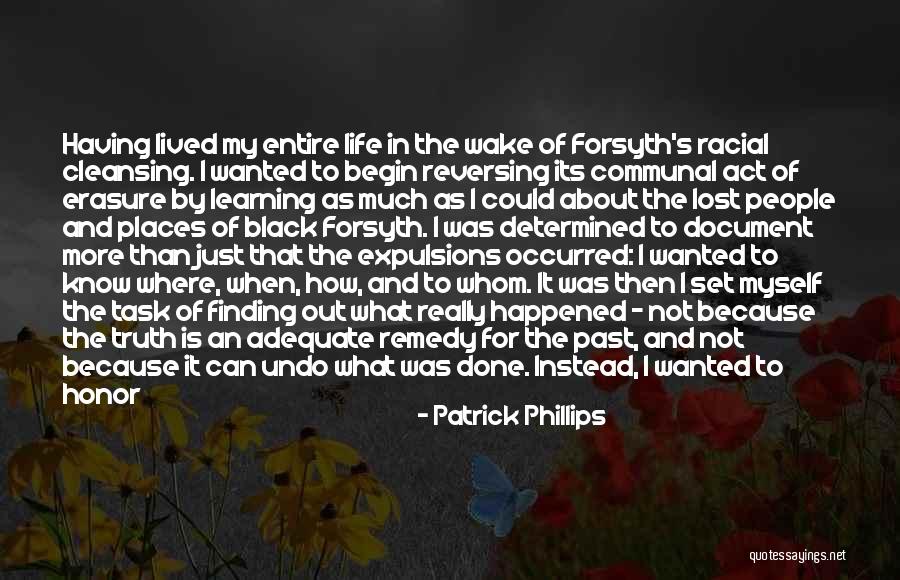
Having lived my entire life in the wake of Forsyth's racial cleansing. I wanted to begin reversing its communal act of erasure by learning as much as I could about the lost people and places of black Forsyth. I was determined to document more than just that the expulsions occurred: I wanted to know where, when, how, and to whom.
It was then I set myself the task of finding out what really happened - not because the truth is an adequate remedy for the past, and not because it can undo what was done. Instead, I wanted to honor the dead by leaving a fuller account of what they endured and all that they and their descendants lost. — Patrick Phillips
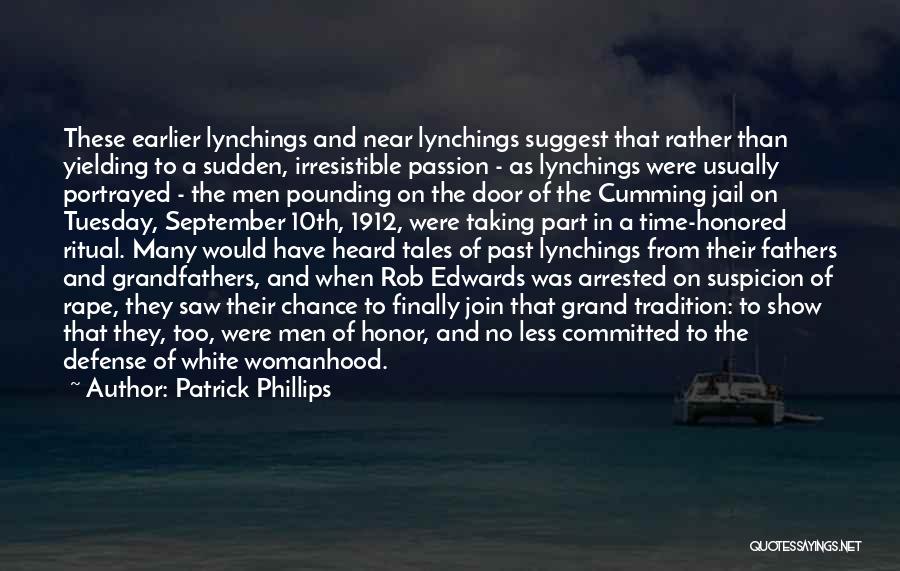
These earlier lynchings and near lynchings suggest that rather than yielding to a sudden, irresistible passion - as lynchings were usually portrayed - the men pounding on the door of the Cumming jail on Tuesday, September 10th, 1912, were taking part in a time-honored ritual. Many would have heard tales of past lynchings from their fathers and grandfathers, and when Rob Edwards was arrested on suspicion of rape, they saw their chance to finally join that grand tradition: to show that they, too, were men of honor, and no less committed to the defense of white womanhood. — Patrick Phillips





